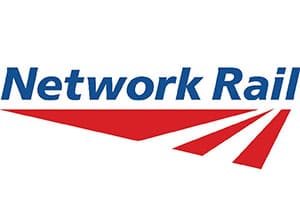 Utility Tenders
Utility Tenders
The utilities sector is undergoing a fundamental change, driven by a changing regulatory environment and greater public service expectations.
The new regulatory environment will mean that utility companies will be able to supply all utility services. Customers may wish to see one bill, one help centre and one point of contact for all their utilities: electricity, gas, phone, television and water. Bidding to the utilities industry must therefore take into consideration the future and what new technology can bring to customer satisfaction. If you are looking to bid into this sector The Bid Team can help.
Due to the nature of the UK, a good source of work for SMEs looking to win utility tenders is through the government. Government utility tenders are lucrative options to SMEs. The government has committed 33% of central government procurement spend to go to SMEs by 2022. This means that there will be more opportunities than ever before for SMEs to compete for utility tenders. The current frameworks available are listed below:
Framework ID Name Lots Suppliers Renewal Date
RM3792 Demand Side Response 1 6 20/06/2020
RM3824 Heat Networks and Electricity Generation Assets DPS 5 15/11/2022
RM3768 National Framework for Energy Performance Contracting (RE:FIT) 1 13 19/04/2020
RM3801 National Fuels Framework 18 32 23/07/2021
RM6011 Supply of Energy and Ancillary Services 2 2 01/10/2023
RM3791 The Supply of Electricity and Ancillary Services 1 1 30/07/2020
Utilities Switching Service DPS 66 21/08/2022
RM3800 Utility Management Software, Metering and Ancillary Services 9 13 02/04/2021
RM3790 Water, Wastewater and Ancillary Services 3 11 15/03/2021
Demand Side Response
This framework is a scheme that financially incentivises customers to lower or shift their electricity use at peak times. DSR schemes can either call for additional capacity to be generated and supplied to the grid to meet demand or call for consumers to reduce their demand.
Heat Networks and Electricity Generation Assets DPS
This framework exists to provide a range of energy demand management and generation services. These services are achieved through a dynamic purchasing system which helps customers find relevant suppliers through a filtering system. Suppliers can apply to join the framework at any time throughout the life of the agreement.
National Framework for Energy Performance Contracting (RE:FIT)
The purpose of RE:FIT is to help public bodies retrofit energy efficiency and local energy generation measures to their buildings or their estate. This reduces annual energy expenditure and carbon emissions.
National Fuels Framework
This is a framework for the provision of liquid and solid fuels, such as heating oil, transport fuel, coal and wood. It also covers the provision of products and services associated with using fuels, such as tank maintenance.
Supply of Energy and Ancillary Services
This is a framework for the supply of electricity and gas for the public sector and their associated bodies and agencies including billing, administration, customer service and where required by the customer, ancillary services.
The Supply of Electricity and Ancillary Services
This is a framework for the supply of electricity as well as additional services, such as automated meter reading (AMR), services to reduce consumption, and energy supply from renewable sources.
Utilities Switching Service DPS
This framework will use a Dynamic Purchasing System (DPS) to provide a utilities switching service for public sector customers.
Utility Management Software, Metering and Ancillary Services
The framework provides for hiring or purchasing utility meters, services to support meters, software to analyse consumption data and associated services for managing energy strategy and helping to save utility costs. This complements CCS’s existing energy supply contracts covering half-hourly electricity, non-half hourly electricity and gas. It also provides you with the data for services available through our demand side response and REFIT agreements.
Water, Wastewater and Ancillary Services
This agreement is for water supply, wastewater and ancillary services aimed at water use efficiency measures to reduce consumption and improve resilience.
The Process
Bids into the utility sector are typical complex, multi-phased and require large diverse teams. The invitation to tender is the initial stage to streamline applicants and create competition. The value of ultility contracts attracts a lot of competition. This means it important to ensure your bid is up to the highest of standards to stand your company in the best position to win. Understanding the tenderer is a vital part of positioning the bid. It is important to understand the needs of the client and make sure your answer directly conveys this understanding and provides a suitable response covering all issues. It is crucial to tailor your bid to the wants and needs of the provider. Writing answers that appeal to the culture of the organisation and suits their structure will help separate your answer from the competition. This will make your answer stand out as well as more appealing to the company supplying the contract. This will help you score highly in your bid submission responses.
Bidders are expected to produce high-specification submissions in terms of content, graphics and media. The audience for the submission can vary from a technical evaluation team through to full public consultation. The approach must therefore encompass a high degree of graphics to represent and visualise the concept, while at the same time convey clear win themes and client benefits, in an understandable manner for all possible audiences.
The Bid Team
If you are looking to submit a utility tender into this sector, then The Bid Team can help. We worked closely with Lanes on a utility tender submission for Thames Water. In 2013 Thames Water announced that they were looking to change the way they procured and worked with service providers across the whole of their network and services. This new way of working was called the ‘Thames Water Alliance’. Lanes was already providing significant services to Thames Water through the AMP5 framework and wanted to be part of the new way of working. Initially they commissioned The Bid Team to put together a position paper to be presented to Thames Water to demonstrate the innovative new solutions that Lanes had. This position paper was called “Strategy 2025” and provided not only a new way of thinking for service delivery but a new way of presenting information. The Bid Team produced a highly visual, graphic led document, that presented the Lanes’ future vision in a way that was clear, striking and informative. The Bid Team further supported Lanes in the various stages of Infrastructure Alliance invitation to negotiate. Lanes was successful in their negotiation with Thames Water. They increased their proportion of the work by adding in new services and areas. They now have a fully collaborative partnership with Thames Water, working as integrated teams in the same offices.
Our bid process is defined and well suited for utility tenders and overview of our process can be found here. In addition we have produced a series of “How to” guides to further assist our clients win work through utility tenders for example “How to position a bid“, “How to qualify a bid” and “How to write a bid answer“. These guides incorporate our approach with easy to use forms and templates. We also provide news on utility tenders on our news page.
If you are looking to bid to this sector, then The Bid Team can help provide bid management, bid writing, bid reviews as well as other services to help your organisation win utility tenders. Please use the form below to contact us for a discussion on your bid.




